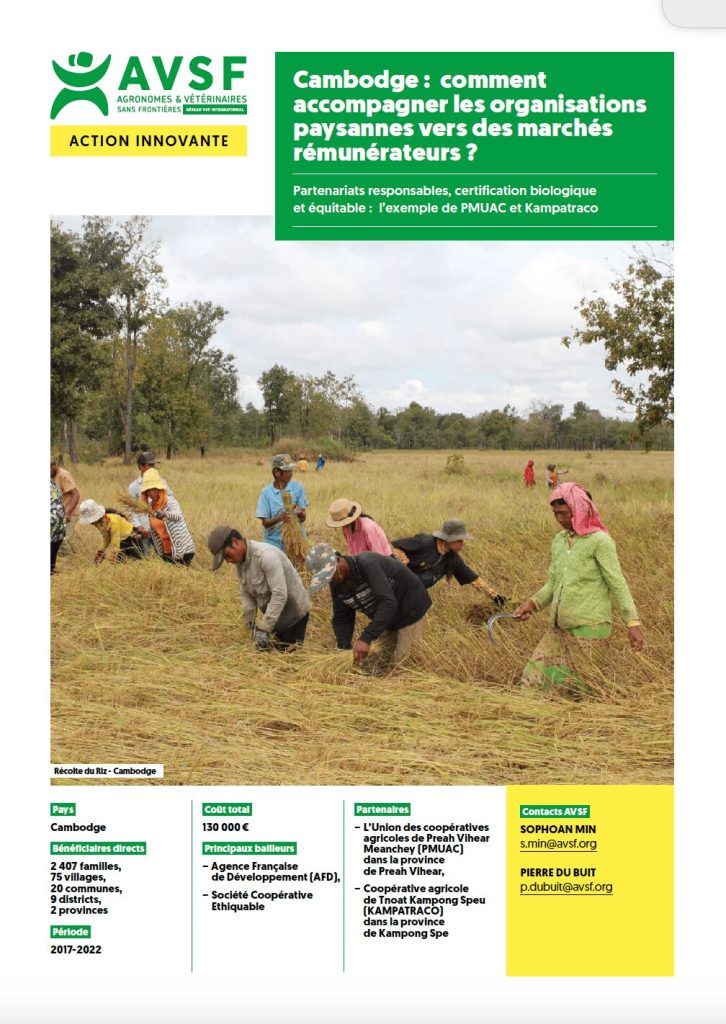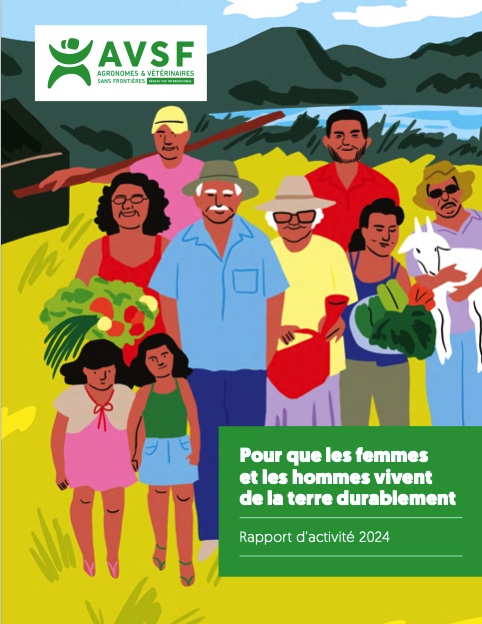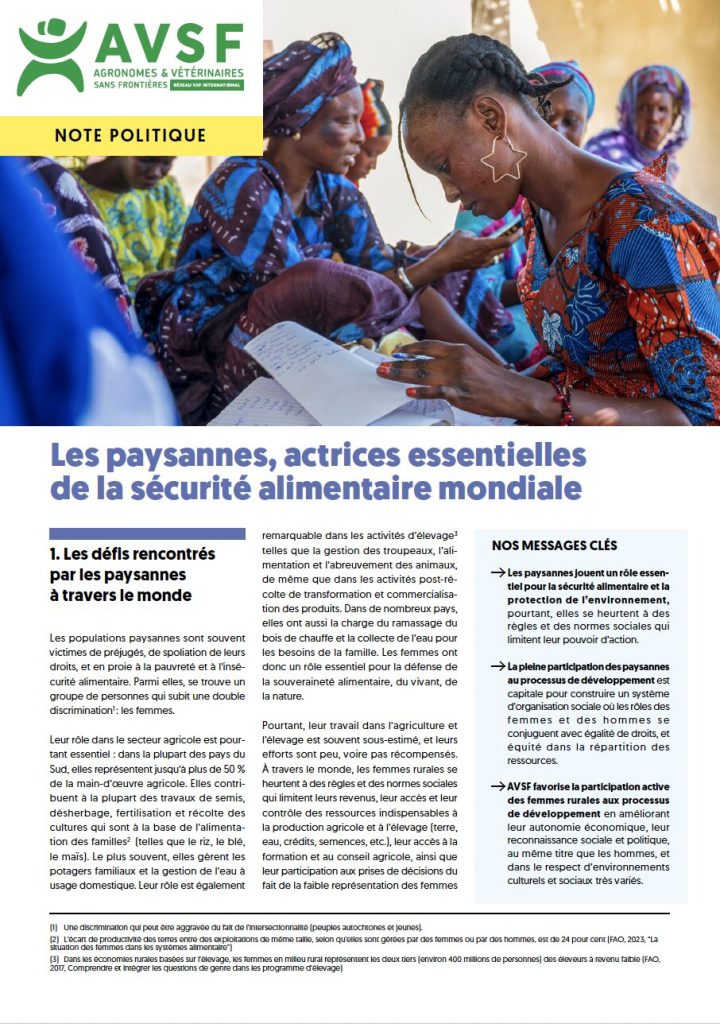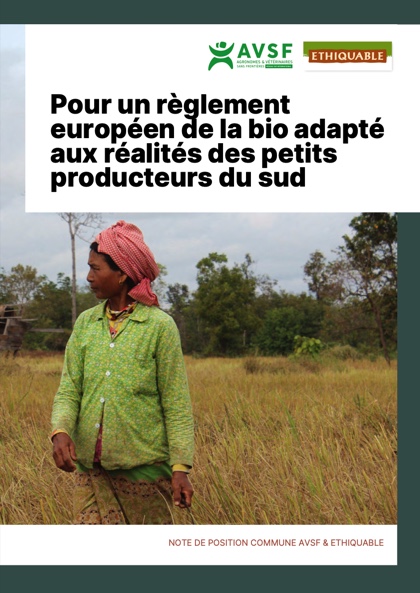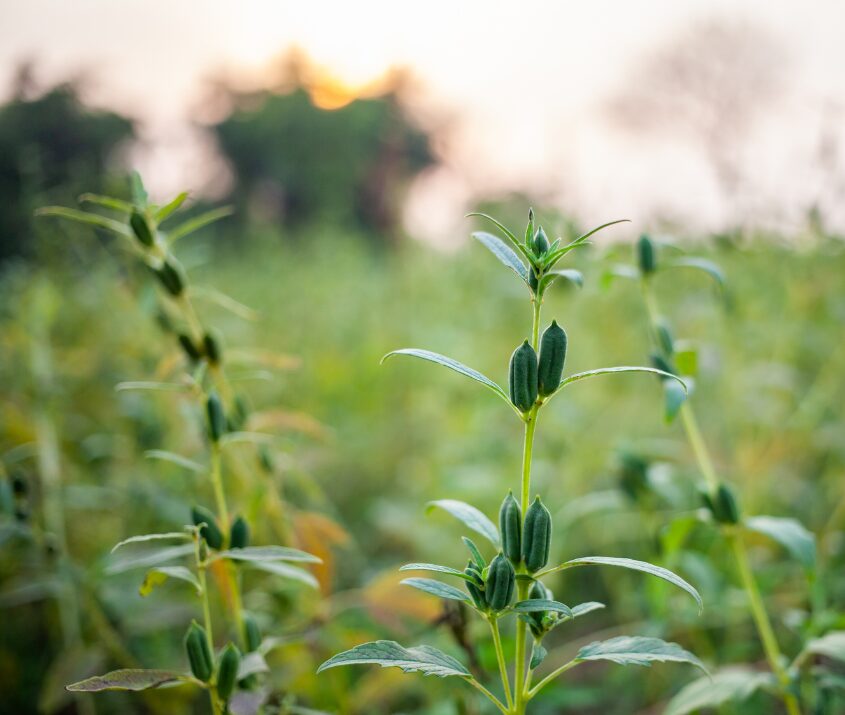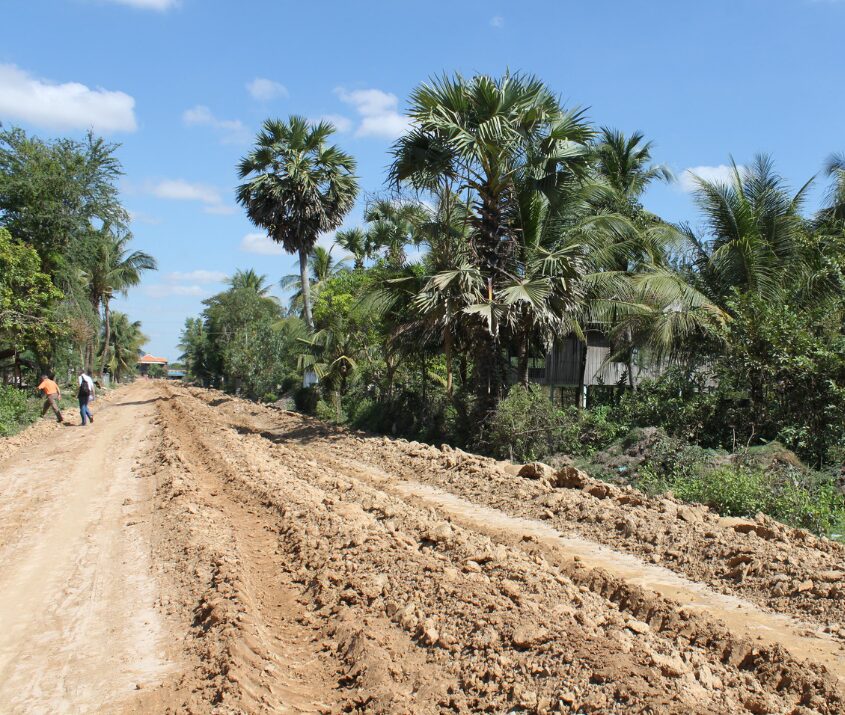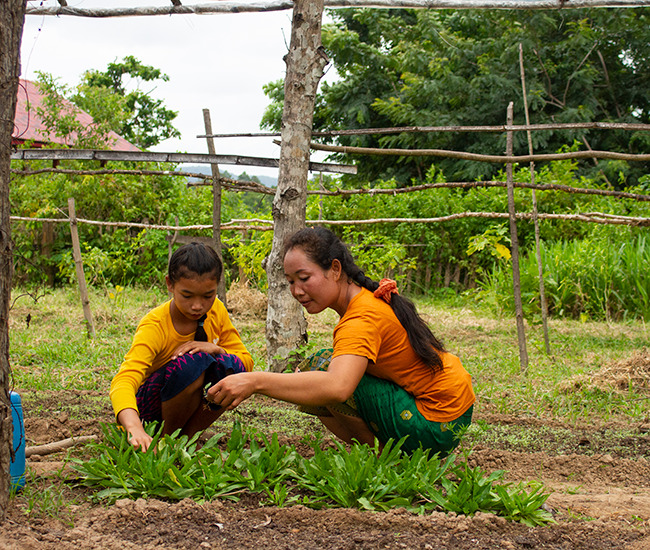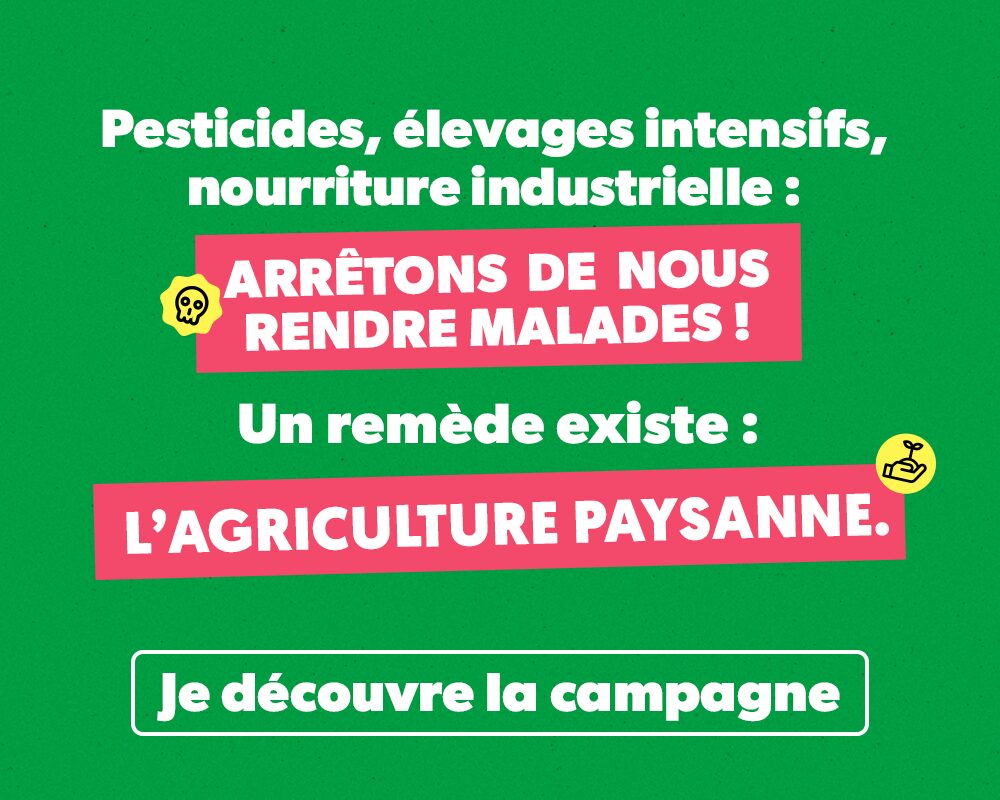In Cambodia, agriculture is the main source of income for rural populations and plays an important role in economic activity and maintaining food security. The rice industry is a major sector, contributing over 15% of GDP. Exports of rice (milled/wholly milled) rose sharply between 2010 and 2020, from 51,300 tonnes to almost 700,000 tonnes. At the same time, rice production methods have changed, and the adoption of direct seeding has led to the use of mineral fertilisers and pesticides that are harmful to human, animal and environmental health, causing fish stocks in rice fields to decline. In addition, the lack of storage capacity and cash flow among farmers, who are not yet organised into cooperatives, means that unhusked rice (or paddy) is sold «at the farm gate» at a time when rice prices are at their lowest and producers’ needs are at their highest. These weaknesses in terms of farmer organisation and access to markets also affect other sectors, such as palm sugar, cashew nuts and groundnuts.
Against this backdrop, the Royal Government of Cambodia and donors are focusing on programmes to support contract farming, linking small farmers with private sector players (buyers, intermediaries, exporters) and/or direct marketing. A large number of cooperatives and unions have been set up to enable the collective marketing of agricultural produce. However, many of them are still poorly organised and do not have access to fair and sustainable markets. This document presents the various actions taken to achieve these objectives.
